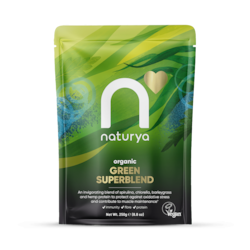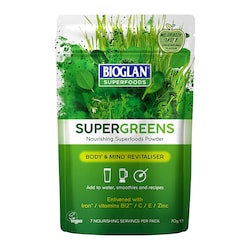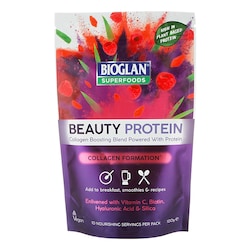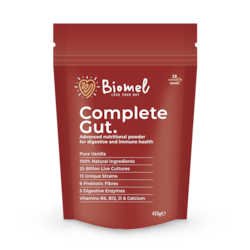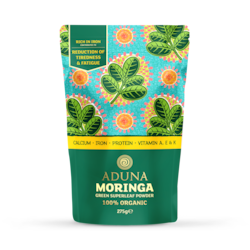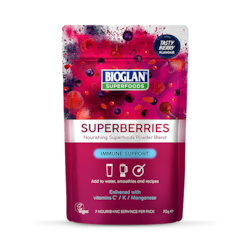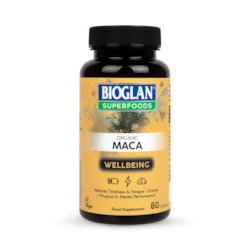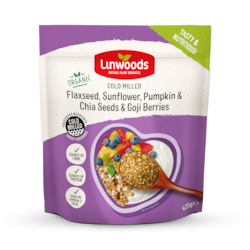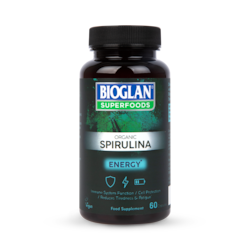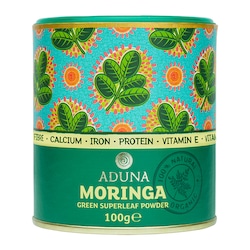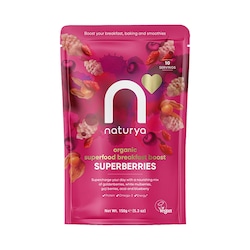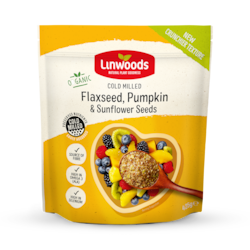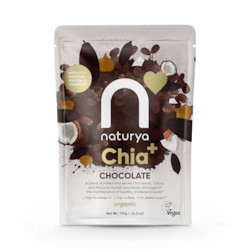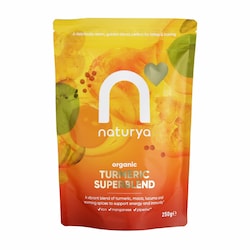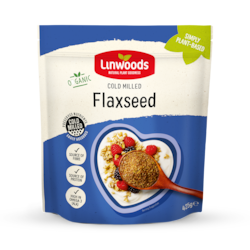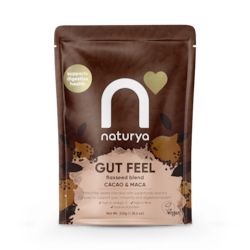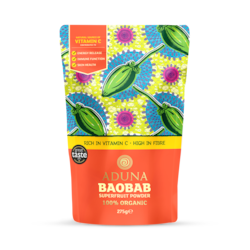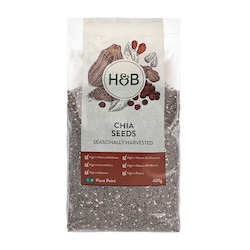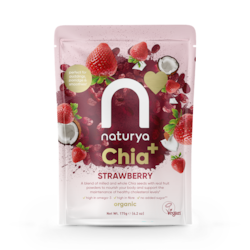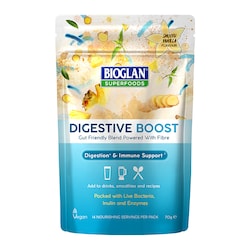15% off £30 OR 20% off £40
10 sea kelp benefits – can it really help hair growth?
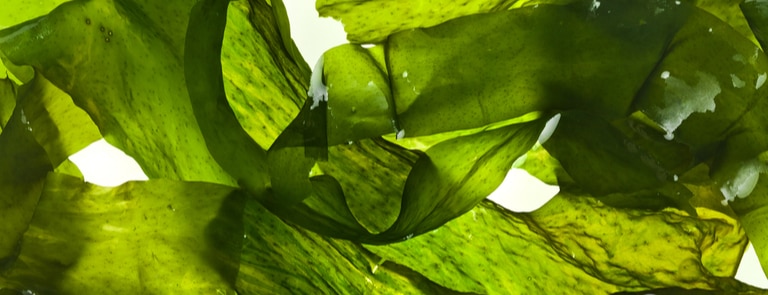
Have you heard good things about sea kelp? Maybe you’ve heard it can help with hair growth? Or it can help people lose weight? In this article, we explain all you need to know about kelp: what it is, to its impact on the body, side effects, cooking with it and more…
What is sea kelp?
Sea kelp, or kelp, is large brown algae. There are quite a few different types of kelp, at least 30; all of which can be found growing in deep salt water (the ocean).1
From a biodiversity perspective, sea kelp plays an important role. Because kelp grows en-masse, not just little clumps of it here and there, these kelp forests provide a home and food for many fish and underwater mammals. As one of the fastest-growing plants on the planet – it can grow as much as 300 feet a year – its ability to feed and shelter the ocean’s wildlife is unrivaled.
Finally, kelp is often referred to as being a 'superfood from the sea' because it contains 10 times more calcium than milk and more Vitamin C than orange juice. What’s more, powdered sea kelp is really easy to add to your drinks, smoothies, cooking and baking.
Is sea kelp and seaweed the same?
Strictly speaking, sea kelp and seaweed aren’t the same thing, despite the fact people may think they are, and even refer to kelp as seaweed and vice versa. They also happen to look very similar too.2
Seaweed uses light from the sun and carbon dioxide to live and grows in fresh and saltwater. Meanwhile, kelp (which is a type of seaweed), thrives on nutrients that are in the sea and is found in deep seawater.
Interestingly, seaweed can grow in all sorts of sizes while kelp will always grow bigger; into kelp forests. Sea kelp needs nutrient-rich waters to exist because of the sheer scale of it. There also needs to be at least a small amount of movement in the water to provide it with the nutrients it needs to exist and grow. Giant kelp is a perennial that can live for up to seven years.
Summary
- Kelp is large brown algae that grows in deep saltwater
- It contains 10 times more calcium than milk and more Vitamin C than orange juice
- Sea kelp and seaweed aren’t the same thing
10 sea kelp benefits
-
Sea kelp and vitamins
Kelp is packed full of so many different vitamins, including Vitamin K, Vitamin A, Vitamin B-12, calcium, iron and magnesium. Vitamin K aids with bone metabolism and helps produce the protein that’s required for blood clots. While Vitamin A is key to so many functions in your body, from making sure you have optimal eye health, to supporting the immune system and reproduction. It also helps the heart, lungs, kidneys and other organs work at their best.3
-
Sea kelp and thyroid function
Kelp is recognised as being of the best sources of iodine, which is essential for thyroid hormone production. Being deficient in iodine can lead to goiter—an enlargement of the thyroid gland—as well as impact your metabolism.4
The recommended daily intake of iodine is 150mcg for healthy adults. The maximum iodine intake is 1,100 mcg. Exceeding this limit isn’t advised because it can lead to goiters, thyroid gland inflammation and thyroid disorders.
-
Sea kelp and bone health
As we’ve already established, kelp is packed full of vitamins in addition to minerals, calcium, iron and magnesium. And, as we all know, calcium plays a vital role in bone development and health, with kelp containing more calcium than any other calcium-rich vegetable.5
The recommended dietary allowance of calcium is 1,000mg a day for most adults. Raw kelp contains 168mg per 100g serving. Dried kelp contains 372mg per 100g serving.
If you're on a dairy-free diet, check out these 5 ways to boost bone health without dairy.
-
Sea kelp weight loss
Kelp contains a fibre called alginate, which studies have found can prevent fat being absorbed by the gut by 75%. As a result, research into kelp being used as a weight maintenance supplement is being carried out.6
One study in 2012 found that, when combined with an energy or calorie-restricted diet, alginate supplementation was linked with greater weight loss in people with obesity. This is thought to be due to the fact the fibre helps reduce hunger by increasing satiety.7
-
Sea kelp for hair
It’s widely reported that sea kelp may help with hair loss, mainly because of the fact it contains iodine. And iodine’s impact on thyroid functionality, which has the potential to trigger hair thinning, is where the connection lies.8
While sea kelp for hair loss may not necessarily have been widely proven, kelp does have other hair benefits. Using shampoos and conditioners that contain kelp can help strengthen weak hair due to the fact it contains an abundance of minerals and vitamins.
Handpicked content: Iodine: function, foods, deficiency and supplements
-
Sea kelp and longevity
Believe it or not, kelp has been linked with leading to a longer life. It's eaten with most dishes in Japan and is said to be a contributing factor to Japanese people’s above-average life spans. More research is needed to evidence this claim.9
-
Sea kelp and ageing
The iodine in kelp is believed to be a valuable anti-ageing ingredient. A 2008 study found that the form of iodine in kelp removes free radicals, the chemicals that are responsible for causing ageing, from human blood cells.10
-
Sea kelp and diabetes
Some studies have found that that eating kelp and other seaweed helps to reduce blood glucose levels. A study involving 20 Koreans with Type 2 diabetes showed that eating kelp increased the activity of antioxidant enzymes and improved glycaemic control.11
-
Sea kelp and cholesterol levels
A study published in Pharmaceutical Biology reported that kelp has the ability to lower cholesterol levels. Not only were bad cholesterol levels reduced, the research found kelp also lowered triglycerides and raised good cholesterol levels.12
Handpicked content: What is cholesterol?
-
Sea kelp and muscle function
Kelp can reportedly provide you with energy for working out and help your muscles recover too. It contains high levels of magnesium, which is essential for several biochemical reactions in the body. Because kelp is an electrolyte, it keeps muscles functioning properly, and then helps them relax properly too. One study in particular specifically found that magnesium helped professional cyclists recover better from muscle damage.13
Summary
- There’s a long list of health benefits linked to kelp
- They include improved hair health, muscle function and recovery and lower cholesterol
- It can also reportedly help with weight loss and thyroid function
Sea kelp dosage
Sea kelp is available as food, tablets, powders or tinctures. Different types of kelp are used to make kelp supplements, which include winged kelp, laminarin and fingered tangle.14
Each species contains different amounts of iodine levels and nutrients, which means the supplement strength and any associated side effects/risks will vary according to the supplement you take.
At present, there are no official recommended daily dosage guidelines in place for kelp.
But what may help, is the recommended daily dosage for iodine, which is 150mcg. One gram of powdered kelp contains approximately 200mcg of iodine. Certain kelp-based supplements contain this amount in one tablet. Never exceed the recommended dosage without consultation and always speak to your GP before taking kelp supplements.
Sea kelp side effects
Never take sea kelp without seeking medical advice first. Due to its high iodine levels, kelp has been linked to causing hyperthyroidism and hypothyroidism, and abnormal thyroid activity.15
Kelp may also contain harmful metals, such as cadmium, lead, aluminium and other heavy metals, that have been absorbed from the ocean.
Women who are pregnant or breastfeeding shouldn’t use kelp supplements, unless advised to do so by their GP. People who are being treated for thyroid issues and are taking certain heart medications should also avoid taking kelp too, as it may interfere with the medicine/impact thyroid activity.
When to take sea kelp supplements
If you'd like to increase your kelp intake, then taking a kelp supplement, either powdered or capsules, may be an option. Both forms are effective at boosting increasing kelp levels and should be taken according to the manufacturer’s guidance. Generally speaking, powdered kelp supplements are absorbed more quickly than capsules because there is no capsule barrier to break down. What’s more, they can also be mixed into drinks. Always speak to your GP first to make sure it’s safe for you to take kelp supplements.
How to cook with kelp
Raw kelp can be added to stir-fry dishes, soups, salads, smoothies and other drinks. Meanwhile, dried kelp can be added to dried beans to enhance the flavour and make them less gassy.
It can also boost the flavour of soups and broths. Meanwhile, kelp noodles can be eaten hot or cold, but do need thoroughly rinsing beforehand. They go well in green salads and are an ideal alternative to pasta.16
Summary
- Sea kelp is available as food, tablets, powders or tinctures
- It contains high levels of iodine and may also contain harmful metals
- Kelp supplements should be taken in accordance with the manufacturer’s guidance
Takeaway
Who’d have thought that sea kelp, that brown slimy stuff that grows in huge clumps in the sea could be so good for human beings? There’s a lot to love about kelp. Not only does it provide vital food and shelter for the ocean’s many inhabitants, it contains a long list of minerals and vitamins, far more than any other food.
It may not look like a superfood, but it most definitely is. What with all the different vitamins it contains, such as Vitamin K, Vitamin A, Vitamin B-12, as well as calcium, iron and magnesium, it’s no wonder it can boost our health in so many ways. While it may not be something that’s historically been at the top of your shopping list, it needs to be. And if you don’t fancy cooking with it or eating it raw, take some kelp supplements instead. But remember, check with your GP it’s ok to do so beforehand.
Last updated: 24 May 2021
Sea moss health benefits
Now that you’re up to speed on kelp, want to learn about sea moss? Find out its benefits and how to include more in your diet.


- https://www.mindbodygreen.com/articles/kelp-the-health-benefits-and-supplements
- https://mywaterearth.com/kelp-vs-seaweed/
- https://www.mindbodygreen.com/articles/kelp-the-health-benefits-and-supplements
- https://www.mindbodygreen.com/articles/kelp-the-health-benefits-and-supplements
- https://www.mindbodygreen.com/articles/kelp-the-health-benefits-and-supplements
- https://www.mindbodygreen.com/articles/kelp-the-health-benefits-and-supplements
- https://www.shape.com/healthy-eating/diet-tips/what-is-kelp-benefits
- https://www.marieclaire.co.uk/news/beauty-news/sea-kelp-for-hair-3889
- https://www.mindbodygreen.com/articles/kelp-the-health-benefits-and-supplements
- https://www.cosmopolitan.com/uk/body/diet-nutrition/a24605/sea-kelp-benefits-7987/
- https://www.goodnet.org/articles/5-kelp-benefits-for-your-health
- https://www.livestrong.com/article/156440-what-are-the-benefits-of-kelp-powder/
- https://www.wellandgood.com/kelp-benefits/
- https://selfhacked.com/blog/kelp/
- https://www.urmc.rochester.edu/encyclopedia/content.aspx?contenttypeid=19&contentid=Kelp/
- https://www.verywellfit.com/kelp-nutrition-facts-4179038


